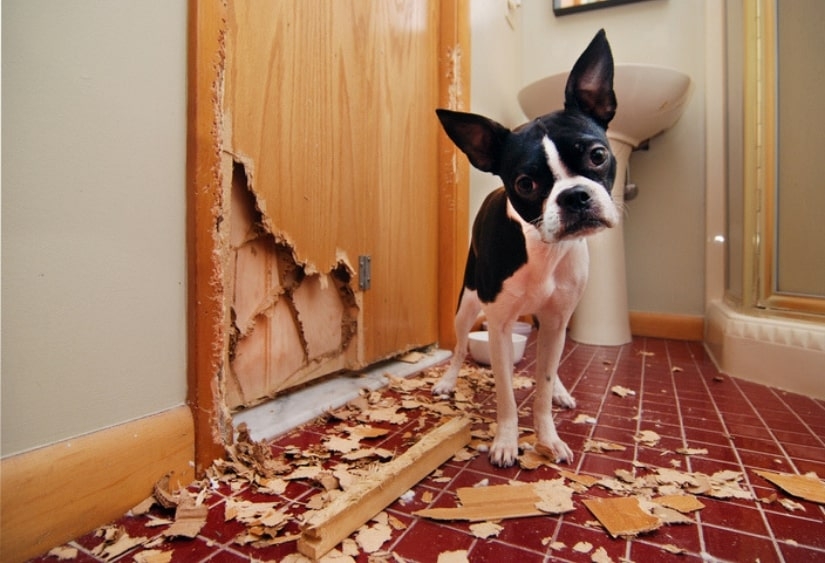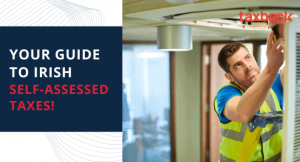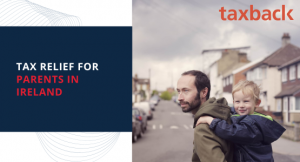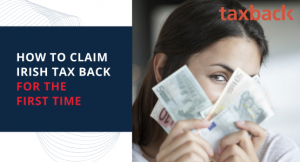I'm an Irish Landlord - How Can I Protect Myself?
Ireland has around 305,000 landlords.
These landlords own around 400,000 private rental homes countrywide.
But how can landlords protect themselves when the going gets tough? There is a lot that can go wrong for landlords, besides the obvious unruly tenants destroying property or dipping out on rent, you could find yourself behind on your mortgage payments, overwhelmed by additional expenses like property tax and so on.
So, if you’re investing in a property but you’re worried about becoming a landlord, here are a few ways that you can protect yourself.
Download your FREE Self-Assessed Irish Tax Guide
Post financial crash
Since the financial crash, the cost of being a landlord has risen drastically. This is down to a few different factors like extra taxation, compliance with new regulations and expensive property tax rates.
Many landlords are finding that the financial return they receive isn’t great in comparison to the cost of the properties and the amount of risk that’s involved on their part. Landlords are struggling to come out with a decent profit, despite rising rental prices and demand for housing. Often this is due to high rates (and the introduction of USC on rental income) of taxation combined with high mortgage rates.
Know the rules
Don’t think you won’t get in trouble for breaking the rules, because you will! In fact, tenants are protected by a whole bunch of laws and regulations. One of the best ways a landlord can protect themselves is by knowing the rules inside and out. Understand your rights but also your tenants’ rights. Make sure you’re aware of any costs that you’re legally obliged to cover i.e. tax etc.
Check out the RTB if you ever have any questions or queries related to your responsibilities or rights as a landlord.
For instance, if you raise your rent more than the allowed limit in a Rent Pressure Zone, you could face criminal charges. These changes are being introduced in response to the rental crisis. This bill also allows the RTB to investigate private rental dwellings when an issue arises.
Are you a Landlord?

Landlord’s Insurance
There are a number of categories of insurance that you can potentially take out as a landlord. Let’s look at the most common and most important insurance types.
1. Buildings insurance
Often mortgage providers will require that you have buildings insurance, particularly when it comes to buy-to-let mortgages.
This is probably the most important insurance type for landlords. It covers any costs associated with repairing or rebuilding in the event of accidental damage or malicious damage caused by tenants. It can also include glass, lock and key replacement.
2. Public liability insurance
If someone suffers an accident and injures themselves on your premises, you could be found negligent if this individual decides to make a claim. This type of insurance protects you in this scenario. If you hire someone to do work for you, say a plasterer, gardener or cleaner – check to make sure they have their own liability insurance in place.
3. Loss of rent cover
This will cover you in the event that your property becomes unliveable due to damage like say flooding or fire damage. If your tenants are forced to leave you will be compensated for the rent you’re missing out on.
4. Contents insurance
You will need different amounts of landlord’s contents insurance depending on whether your rental property is being let furnished or unfurnished. If it is furnished, you will need to insure all of your possessions on the property. This includes electrical appliances, furniture, ornaments, semi-permanent or permanent fixtures or fittings. If it’s unfurnished, you can cover blinds, curtains, carpets etc.
5. Accidental damage
This is for damage that has been caused as a result of negligence or misuse. Generally, it’s incorporated into your buildings or content insurance but make sure to review your policy and check if it is and if so, if it provides substantial cover. Say couch leg breaks and it becomes unusable – this will likely be covered by contents insurance. If a large hole gets knocked into your plasterboard, this will be covered under your buildings insurance policy.
6. Legal expenses cover
This covers any costs associated with legal action that you may be forced to take as a landlord; repossessing property, disputes with your tenants, squatters and so on. This generally won’t be included as part of your standard policy so review your policy and confirm that it is or isn’t covered.
7. Unoccupied property
If your property is going to go unoccupied for more than 30 days in a row, you will need to get unoccupied property insurance. Otherwise, your other insurances may be invalid during this time. Many policies are only valid if the property is occupied. This is because empty properties are more at risk to damage like vandalism, break-ins and weather damage.
8. Rental protection insurance
You can get insurance on up to €48,000 or the lesser of 11 months’ rent with RentAssured.ie. Their average premium will cost 2% of the annual rental income. So if you pay €1,500 a month on your property, you’ll pay €360 per year for the cover. This covers tenants who refuse to pay rent.
Landlord insurance will usually combine many items from this list but you will have to shop around and find a policy that suits you and your needs as a landlord. Often, insurance providers will offer discounts if you wish to purchase more than one insurance policy at a time or if you wish to ensure multiple properties at once. Thoroughly review your policy to guarantee that it

What are some of the ways you can save money as a landlord?
Rent-a-Room Scheme
This scheme is for people who are renting out a living space in their primary residence. Under this scheme, you can rent out a room (or several) in your home and make up to €14,000 combined before being charged any tax. If you go over the €14,000 mark by even 1cent, you will be taxed on the whole lot.
In this case, you won’t have a standard tenancy agreement and therefore won’t have the same rights as a standard landlord. You’re not under the same obligations like say providing a rent book or a statement of paid rent. Your accommodation doesn’t have to be up to HAP tenant standards.
If you’d like to know more about the rules associated with the Rent-a-Room scheme, check out our article here.
HRI
The Home Renovation Incentive might have been scrapped but landlords who took out qualifying home repairs, improvements or renovations on their home between 15 October 2014 and 31 December 201 may be entitled to tax relief.
The HRI tax credit is payable over the 2 years following the year you carried out the work. It’s calculated at a rate of 13.5% on all qualifying expenditure over €4,405 – before VAT and up to a maximum of €30,000 – before VAT. If you’d like to know more about the HRI and what kind of work qualifies – you can read a more in-depth explanation of the scheme here.
Mortgage Interest Relief
Mortgage interest relief is a tax based on the amount of interest you have paid during the tax year on a qualifying mortgage loan. You can claim it on interest that you paid on a loan that was used to; purchase, repair, improve or develop a home.
It is possible to deduct interest on mortgages up to 31 December 2020. This relief can be claimed on mortgage loans taken out between 1 January 2004 and 31 December 2012.
You must be able to prove that you’ve registered all tenancies in the property with the RTB (Residential Tenancies Board). Interest can only be deducted during the period in which the property is let.
Are you a Landlord?
How do I pay my income taxes as a landlord?
If you are a landlord but you also have a PAYE job, you can file your taxes under your PAYE tax assessment so long as you’re earning less than €5,000 net (that’s after expenses) but not nil from your non-PAYE income. You can do this by submitting a tax return Form 12.
If you earn over €5,000 in non-PAYE net income in a year, you must file your self-assessed taxes. This will require registering with Revenue, filling out and submitting a Form 11.
However, if your gross non-PAYE income is more than €30,000, you’ll be regarded as a chargeable person, even if your income is less €5,000 net. A chargeable person in this scenario means someone who’s chargeable to tax on income on their own account.
Download your FREE Self-Assessed Irish Tax Guide
Full-time landlords
If you are planning on being a full-time landlord or if none of your income falls into the PAYE category, you are legally obliged to file under the self-assessed tax system. Again, this will require registration and submitting a Form 11.
Taxback.com can help you!
If you believe you’re entitled to tax relief, then why not contact us today and find out? If you’d like help filing your taxes as a Landlord – our team of experts will walk you through the entire process from start to finish, making sure you avail or every relief you’re entitled to; This includes flat rate expenses, medical expenses, family and care related expenses, redundancy, career change or if you’ve worked abroad.
We also handle any other form of earnings from investments to cryptocurrency to consulting and nixers.




